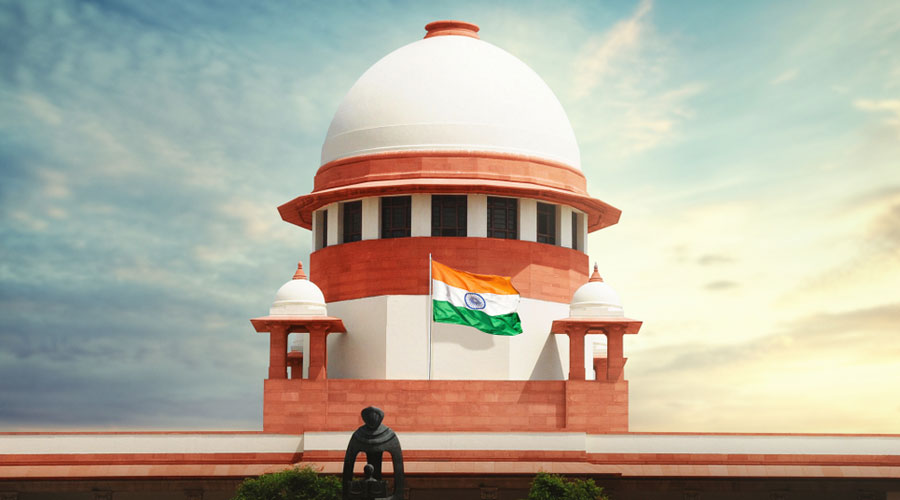The Supreme Court on Thursday said the Covid crisis amounted almost to a “national emergency” and asked the Centre to formulate a “national plan”, while indicating that high courts should leave the decision on announcing lockdowns to the state governments.
“We are almost in a state of national emergency,” the special bench of Chief Justice S.A. Bobde and Justices L. Nageswara Rao and S. Ravindra Bhat said, deciding to conduct a detailed hearing on Friday after the Centre submits its action plan.
Several legal experts said on the condition of anonymity that they wished the apex court had intervened earlier, with six high courts having already pulled up state authorities for failing to check the pandemic’s resurgence.
The apex court bench, which took suo motu cognisance of the rising Covid cases, said it might transfer to itself the pandemic-related matters pending with the six high courts.
“We as a court wish to take suo motu cognisance of certain issues. We find that there are six high courts --- Delhi, Bombay, Sikkim, MP (Madhya Pradesh), Calcutta and Allahabad --- (that) are exercising jurisdiction in best interest, but it is creating confusion and diversion of resources,” Justice Bobde remarked.
“One high court thinks there is a priority for one group and some for another. We have four issues in mind: supply of oxygen, supply of essential drugs, method and manner of vaccination and power to declare lockdown.”
He added: “We want to keep the power to declare lockdown with states... (it) should not be a judicial decision. We issue notice on these issues. Senior adv(ocate) Harish Salve will act as the amicus curiae (friend of the court). We want to see a national plan on this issue….”
On Tuesday, the Uttar Pradesh government had secured a stay from the apex court on the previous day’s Allahabad High Court order imposing lockdowns in the cities of Varanasi, Lucknow, Allahabad, Kanpur and Gorakhpur.
Calcutta High Court has pulled up the Election Commission for failing to ensure the observance of pandemic protocols during the Bengal poll campaign, which has coincided with a Covid surge in the state.
The high courts of Delhi, Allahabad and Bombay have lambasted the Centre and the state governments led by Arvind Kejriwal, Yogi Adityanath and Uddhav Thackeray for their poor handling of the Covid crisis.
On Thursday, the apex court took cognisance of the matter after the Centre and Vedanta Limited jointly sought reopening of the company’s controversial Sterlite copper smelting plant in Tuticorin, Tamil Nadu, for the purpose of producing 1,000 tonnes of oxygen per day.
The Tamil Nadu government had shut the Sterlite plant down in May 2018 after 14 people died in police firing while demonstrating in support of a demand to close the factory on environmental grounds.
On Thursday, solicitor-general Tushar Mehta, appearing for the Centre, argued: “The country is in dire need of oxygen.... Vedanta wants to make its plant operational, but let Vedanta only make it operational to manufacture oxygen… for health purposes.”
Salve, appearing for Vedanta, said: “We can start in five to six days if you Lordships give us the go-ahead today.”
Senior advocate C.S. Vaidyanathan, appearing for the Tamil Nadu government, opposed any immediate orders, saying: “There is a trust deficit in the state of Tamil Nadu. Please hear this case next week.”
In December 2018, the apex court had refused to stay a Madras High Court order directing a CBI probe into the police firing.
In February 2019, the top court dismissed Vedanta’s interim application for an inspection of the plant. Earlier in 2019, the apex court had set aside a National Green Tribunal order that had directed reopening of the plant.












